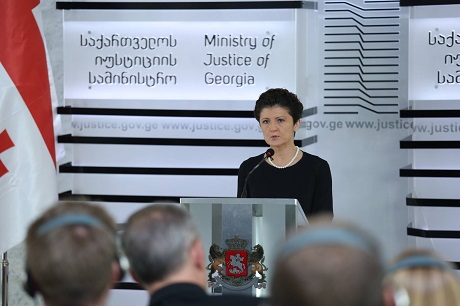PACE discusses report on plea bargains in which Georgia is named as a good example

Before 2017 the plea bargaining mechanism of Georgia was criticized by the EU. Photo:IDFI.
The Parliamentary Assembly of the Council of Europe (PACE) has discussed a report by a Latvian MEP Boriss Cilevics, which speaks about the pros and cons of plea bargains in the judicial field and names Georgia as a positive example in terms of providing effective protection standards.
The report reads that in many European nations regular criminal trials have gradually been replaced by different forms of trial waiver systems, which are also called plea bargaining.
These trial waiver systems have clear potential advantages - they save resources that would be required for fully investigating and full trials - but also serious drawbacks, notably that they are open to abuse by both the prosecution and the defence”, reads the report.
Cilevics has called upon PACE member states and observers to implement procedural safeguards.
In particular, the text underlined that it will be necessary to make the involvement of a lawyer obligatory, to impose a minimum level of investigation into the crime committed and make the results available to the defence, to require judicial scrutiny of key elements of the plea agreement, and to limit the differential between the sanction resulting at the end of an ordinary trial and the sentence proposed in the context of such a transaction,” PACE says.
Head of the Human Rights Committee in the Georgian parliament Eka Beselia, who attended the PACE autumn session, stated that she “fully shared Cilevics’s views.”
The EU Commissioner, before 2017, used to criticise the practice in Georgia. Today, Georgia is named as a good model in the draft resolution with effective protection standards… We need solid guarantees for protection and today, our legislation has enhanced this standard,” Beselia said in her speech in PACE.
She stated that statistics of appellations in 2017 “clearly reveal” that today, indicted persons perceive the plea agreement as a means of simplifying the jurisdiction process.
 Tweet
Tweet  Share
Share



